Navigating the Colorado I-70: Understanding Road Closures and Staying Safe
Related Articles: Navigating the Colorado I-70: Understanding Road Closures and Staying Safe
Introduction
With enthusiasm, let’s navigate through the intriguing topic related to Navigating the Colorado I-70: Understanding Road Closures and Staying Safe. Let’s weave interesting information and offer fresh perspectives to the readers.
Table of Content
Navigating the Colorado I-70: Understanding Road Closures and Staying Safe
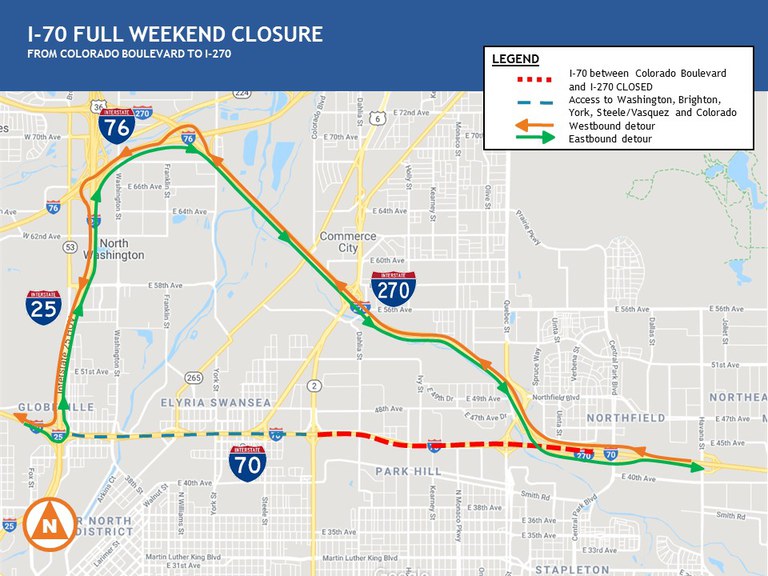
Interstate 70, a vital artery traversing the heart of Colorado, is renowned for its scenic beauty and its role in connecting major cities and recreational destinations. However, the mountainous terrain and unpredictable weather conditions can lead to road closures, impacting travel plans and causing inconvenience. Understanding the factors contributing to closures, the resources available for navigating them, and the importance of safety precautions is crucial for anyone planning a trip along this iconic highway.
Factors Contributing to I-70 Closures:
Several factors contribute to closures on I-70 in Colorado, primarily stemming from the challenging environment the highway traverses:
- Snow and Ice: The high elevation and mountainous terrain make I-70 susceptible to heavy snowfall and ice accumulation, particularly during winter months. Snowstorms can quickly create hazardous conditions, leading to road closures for safety reasons.
- Avalanches: The steep slopes flanking I-70 are prone to avalanches, especially during periods of heavy snowfall or rapid temperature changes. Avalanche activity poses a significant risk to drivers and necessitates road closures for safety and mitigation efforts.
- Rockfall and Debris: The rugged mountain environment can experience rockfall and debris slides, particularly during periods of heavy rain or freeze-thaw cycles. These events can block lanes or cause damage to vehicles, prompting closures for safety and road repairs.
- Mudslides and Floods: Flash floods and mudslides are potential hazards in the mountainous regions, especially during periods of intense rainfall. These events can damage the road infrastructure and create hazardous driving conditions, necessitating closures for safety and repair.
- Construction and Maintenance: Ongoing construction and maintenance projects along I-70 can also lead to lane closures and traffic delays. These projects are essential for maintaining the integrity of the highway and improving safety but can impact travel plans.
Resources for Staying Informed:
Staying informed about potential closures and road conditions is crucial for safe and efficient travel along I-70. Several reliable resources provide up-to-date information:
- Colorado Department of Transportation (CDOT): The CDOT website (www.codot.gov) provides real-time road conditions, including closures, delays, and traffic cameras. CDOT also offers a mobile app, "COtrip," for accessing this information on the go.
- Colorado State Patrol (CSP): The CSP website (www.csp.state.co.us) provides information on road closures, accidents, and traffic advisories. They also have a dedicated Twitter account (@CSP_News) for updates.
- Local News Stations: Local news stations in Colorado frequently report on road closures and weather conditions affecting I-70.
- Radio Stations: Many radio stations in Colorado broadcast traffic reports and road conditions updates.
Navigating I-70 Closures:
When encountering a closure on I-70, it is essential to remain calm and follow these steps:
- Check for Alternative Routes: Utilize the resources mentioned above to identify alternative routes that may be open. These routes can be longer but may offer a safe passage through the affected area.
- Be Patient and Flexible: Closures can last for several hours or even days, depending on the severity of the situation. Be patient and flexible with your travel plans, accepting that delays are unavoidable.
- Stay Informed: Keep checking for updates on road conditions and closure status to plan your next steps.
- Avoid Driving Through Closures: Driving through a closed road is extremely dangerous and can lead to severe consequences. Respect the closures and wait for the road to reopen.
Importance of Safety Precautions:
Traveling along I-70 in Colorado requires careful planning and adherence to safety precautions:
- Check Weather Forecasts: Before embarking on your journey, check weather forecasts for the areas you will be traveling through. This will help you anticipate potential hazards and plan accordingly.
- Pack for Winter Conditions: Even during warmer months, it is essential to pack for winter conditions, including warm clothing, blankets, food, water, and a flashlight.
- Maintain a Safe Distance: Maintain a safe distance from other vehicles, especially in snowy or icy conditions.
- Drive Slowly and Carefully: Adjust your speed to the road conditions and be prepared to react to unexpected situations.
- Avoid Distractions: Refrain from using cell phones or other devices while driving, as this can lead to accidents.
- Stay Informed: Keep abreast of road conditions and closures through the resources mentioned earlier.
FAQs:
Q: What are the most common reasons for I-70 closures?
A: The most common reasons for I-70 closures include snow and ice accumulation, avalanche danger, rockfall and debris slides, mudslides and floods, and construction and maintenance projects.
Q: How can I find out if I-70 is closed?
A: You can check the Colorado Department of Transportation (CDOT) website, the Colorado State Patrol (CSP) website, local news stations, and radio stations for up-to-date information on road closures.
Q: What should I do if I encounter a closure on I-70?
A: If you encounter a closure, check for alternative routes, be patient and flexible, stay informed about the closure status, and avoid driving through the closed road.
Q: What safety precautions should I take when driving on I-70?
A: Before your trip, check weather forecasts, pack for winter conditions, maintain a safe distance from other vehicles, drive slowly and carefully, avoid distractions, and stay informed about road conditions.
Tips:
- Plan Ahead: Plan your trip in advance and factor in potential delays due to closures.
- Check Road Conditions: Regularly check road conditions before and during your trip.
- Be Prepared for Delays: Be prepared for delays and have backup plans in place.
- Communicate with Others: Inform others about your travel plans and expected arrival times.
- Stay Safe: Prioritize your safety and avoid unnecessary risks.
Conclusion:
I-70 in Colorado is a scenic and vital highway connecting major cities and recreational destinations. However, its challenging terrain and unpredictable weather conditions can lead to closures. Understanding the factors contributing to closures, utilizing available resources, and adhering to safety precautions are crucial for navigating this iconic highway safely and efficiently. By staying informed and prepared, travelers can minimize disruptions and enjoy the beauty and adventure that I-70 offers.
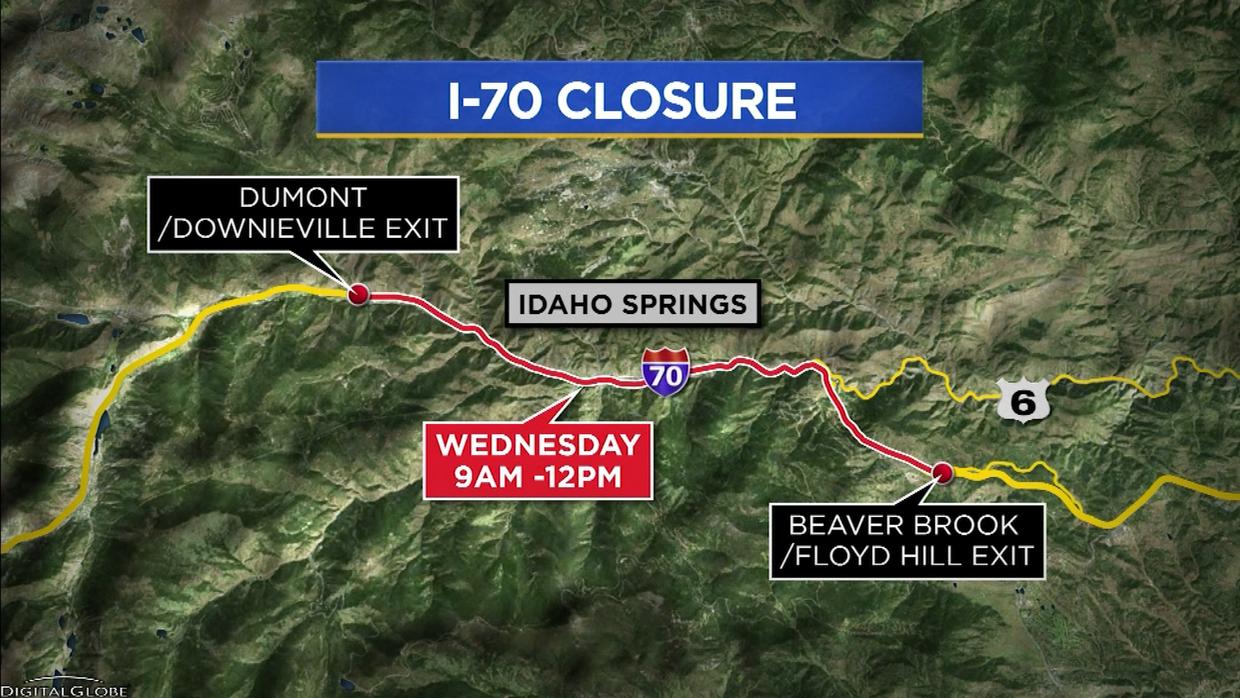
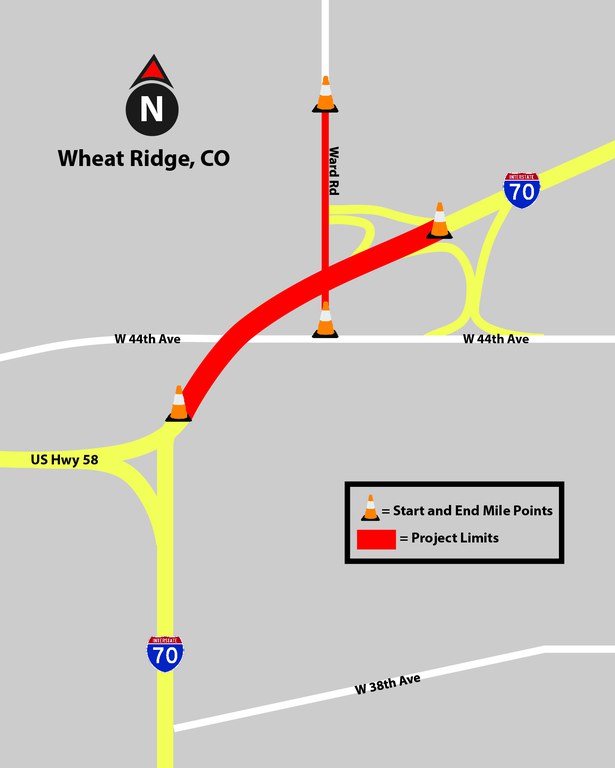
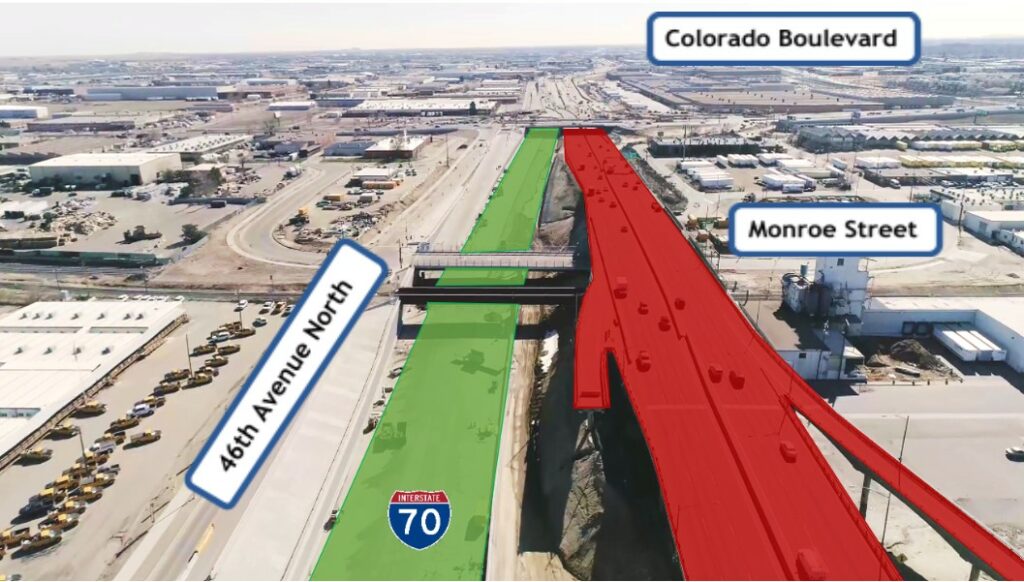
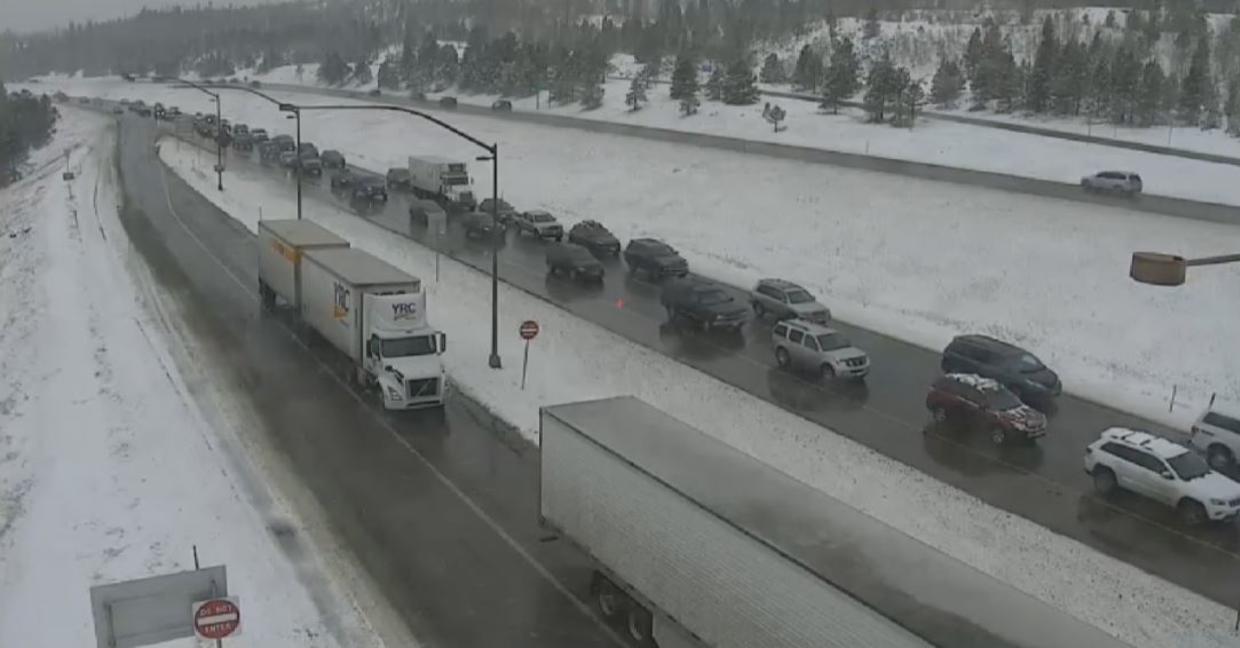

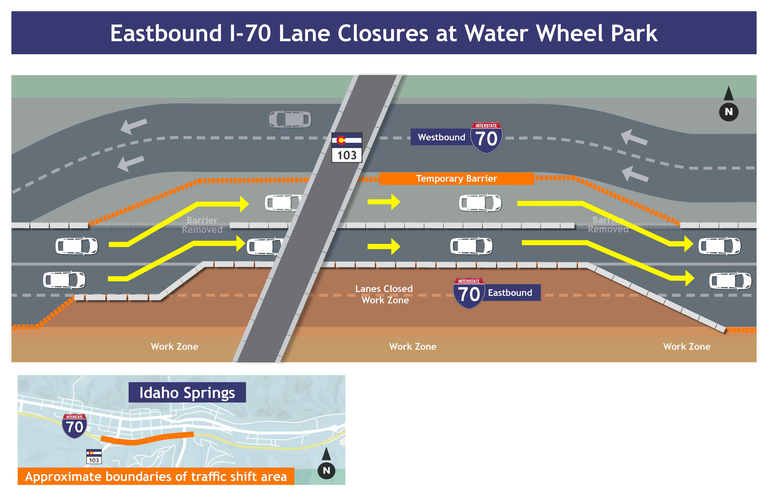

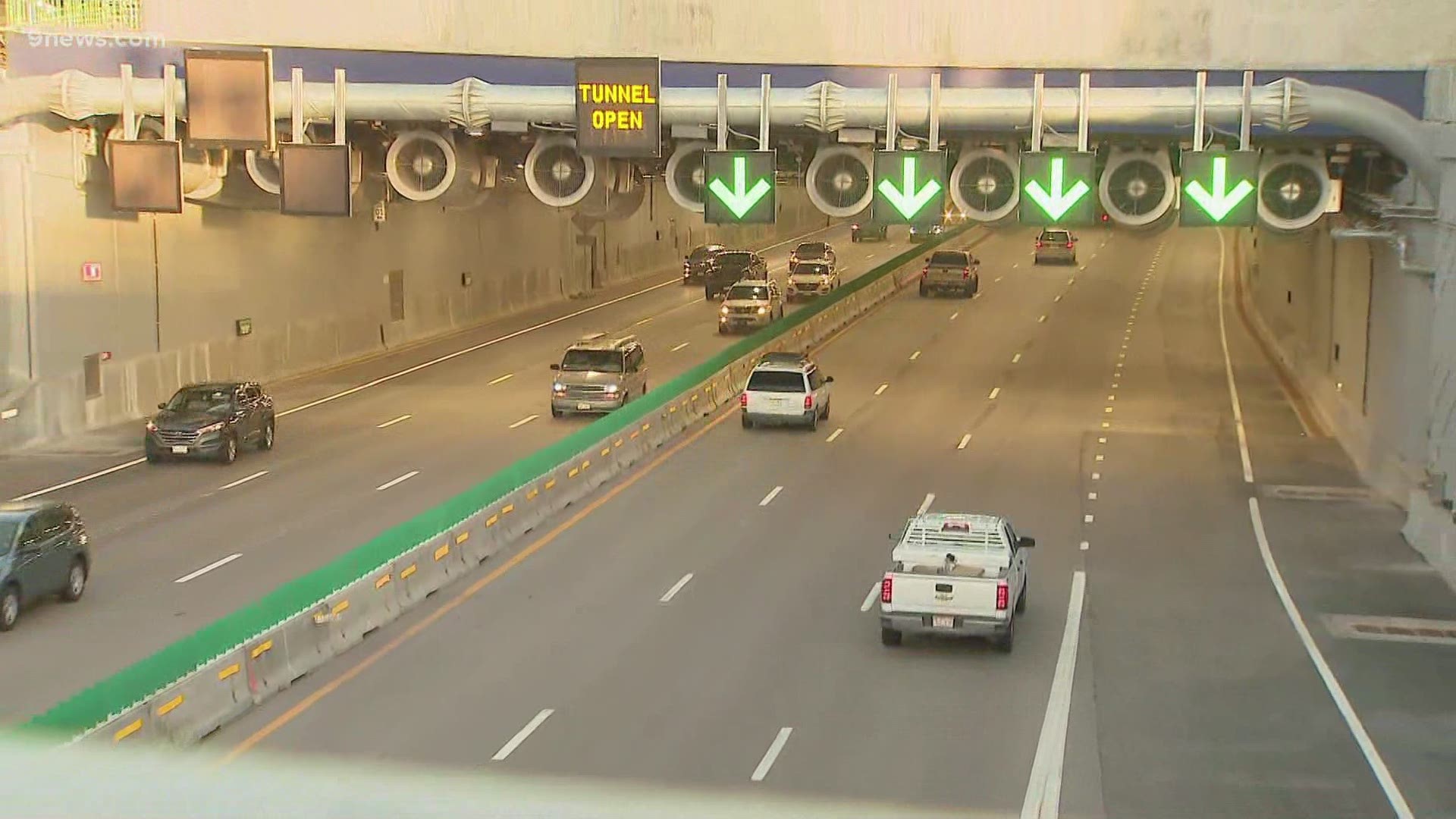
Closure
Thus, we hope this article has provided valuable insights into Navigating the Colorado I-70: Understanding Road Closures and Staying Safe. We hope you find this article informative and beneficial. See you in our next article!